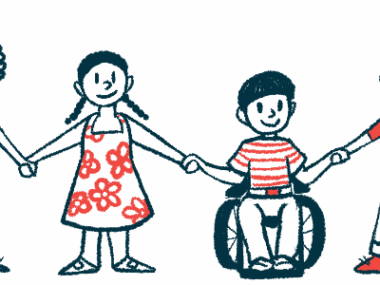Reflections on Disability Representation in Neal Shusterman’s ‘Unwind’
Written by |

Last year, my grandma excitedly told me about the book her high school students had been assigned for summer reading. After reading only a few chapters of “Unwind” by Neal Shusterman, she was clearly hooked and insisted I read it.
I didn’t need much convincing — futuristic young adult sci-fi novels are my favorite, and this one had a plot unlike anything I’d ever read.
To give you a brief synopsis, the story is about three teenagers who are being given to the government by their legal guardians so that their entire bodies can be harvested and transplanted into people needing or wanting new body parts. Readers follow the unlikely trio on their quest to escape and evade capture until they turn 18, the age when they can no longer be legally “unwound.”
(Spoiler alert: From this point on, I’ll be discussing the plot in more detail, so if you might want to read “Unwind,” bookmark this column for later.)
I was so intrigued by the book’s plot that I suggested it for the book club here at Bionews, the publisher of this site. It turned out to be an even better suggestion than I expected because the book contained a surprising amount of disability representation, and we are a company largely composed of disabled individuals and caregivers to people with disabilities.
One character had received a lung transplant due to pulmonary fibrosis (PF), a disease I’ve learned about from working alongside our PF columnists. The mention of the disease in a popular book was a huge win for the PF and rare disease communities.
The disabled character I found myself especially drawn to was Risa Ward. Toward the end of the book, Risa is paralyzed by an explosion, but I loved her even before that. She is strong, intelligent, stubborn, and creative, and when she continued to embody these qualities — which are part of my own personality — after her injury, I grew even more fond of her. With her wheelchair, she was more like me than ever.
By the final chapter, I was thrilled that I’d found a book that portrayed a main character as a strong, disabled woman like me. But just before I reached the end, one line jarred me from my delight.
To paraphrase, when a new arrival at the sanctuary for runaway “Unwinds” first saw Risa playing her piano, he was struck by how she played so joyfully despite her wheelchair.
Despite.
Despite the wheeled contraption that kept her imprisoned in its evil grasp.
Despite the disability that should leave no room for joy in her life.
Of course, the book didn’t actually say all that, but that’s how I interpreted it. And I was crushed. For a moment, I was tempted to waste my limited energy and strength on slamming the book shut in anger and frustration. Instead, I let the moment pass, and my swirling emotions settled on confusion and disappointment.
Why did it have to be despite?
Without even knowing it, I had been desperate for Risa to be strong and joyful with her wheelchair. Because that’s how I saw her, and it’s how I see myself. It’s how I hope the world sees me, too.
I’ve invested so much time and energy in dismantling society’s false perceptions of disability. Wheelchairs are not a burden, and a disability doesn’t have to be a tragedy.
Just like my trach, cough assist, and other medical devices, my wheelchair is a tool that allows me to live a full, abundant life. It doesn’t steal my joy. Yes, living with a disability can be difficult at times, but the hardships don’t consume or remove every source of happiness. If anything, I find that they serve to enhance my appreciation for the good things in life.
So, I didn’t quite get the perfect ending to Risa’s story that I had expected, but perfection is a lot to ask for, isn’t it? Instead, I think I’ll focus on continuing to write my own story and making sure that I portray myself the way I had hoped Risa would be: strong and joyful, wheelchair and all.
And if you still haven’t read “Unwind,” I hope you do. Overall, the author handles disability representation pretty well, and I promise that the fast-paced, dynamic plot will keep you on the edge of your seat.
Just do me a favor and challenge yourself to see Risa from the perspective of someone who knows a thing or two about life in her shoes — or wheels.
Note: SMA News Today is strictly a news and information website about the disease. It does not provide medical advice, diagnosis, or treatment. This content is not intended to be a substitute for professional medical advice, diagnosis, or treatment. Always seek the advice of your physician or other qualified health provider with any questions you may have regarding a medical condition. Never disregard professional medical advice or delay in seeking it because of something you have read on this website. The opinions expressed in this column are not those of SMA News Today, or its parent company, Bionews, and are intended to spark discussion about issues pertaining to spinal muscular atrophy.








Leave a comment
Fill in the required fields to post. Your email address will not be published.